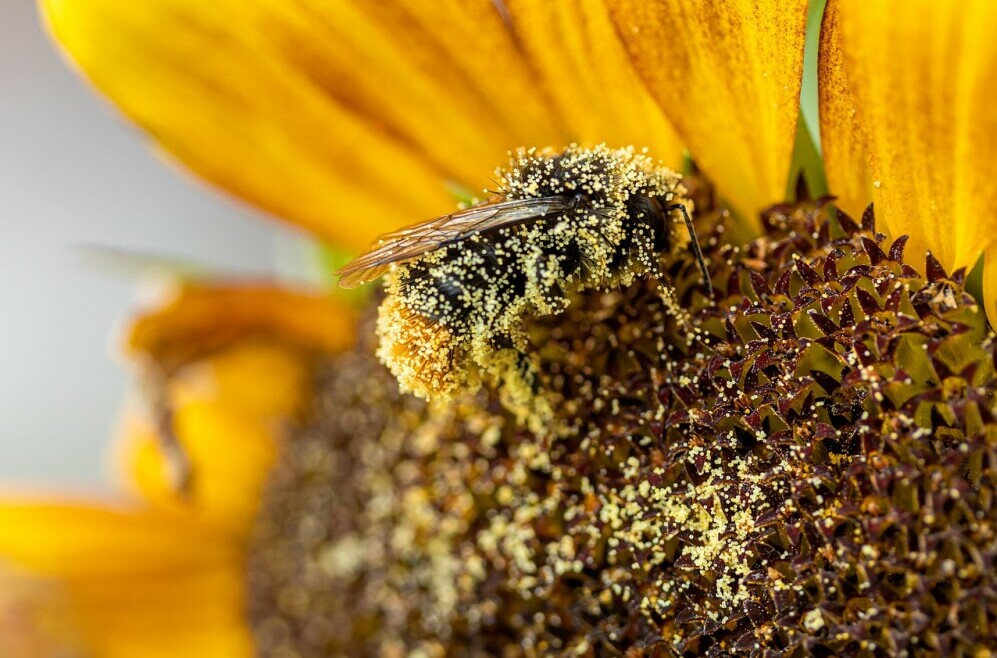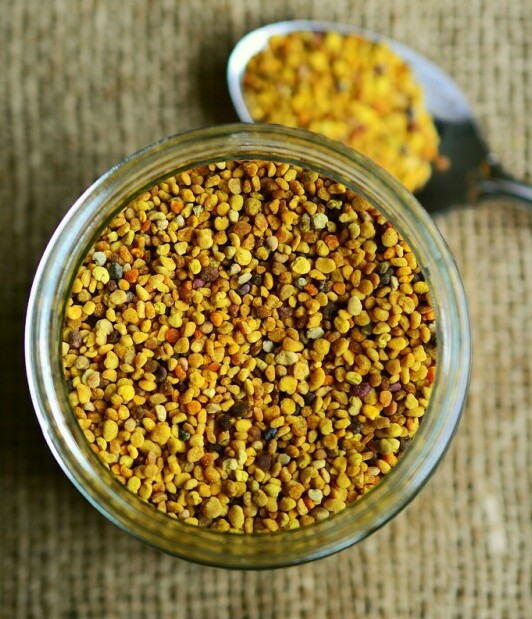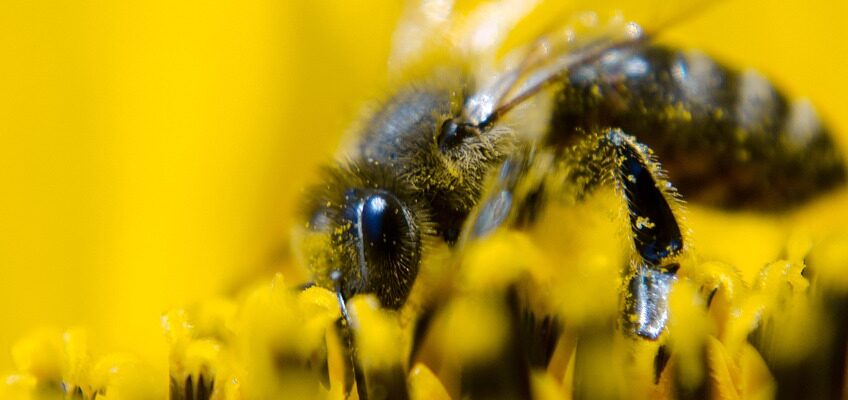Have you ever noticed the tiny granules that bees carry on their legs? That’s bee pollen, and it’s more than just a byproduct of their tireless work. Often referred to as nature’s multivitamin, bee pollen is a complex and nutrient-dense substance that plays a crucial role in the ecosystem.
Curious about what’s inside these small pellets? Bee pollen is packed with vitamins, minerals, carbohydrates, lipids, and proteins. It’s practically a whole-food multivitamin, including a bit of almost everything your body needs.
Bee pollen is formed when bees collect flower pollen and combine it with a small dose of the secretion from salivary glands or nectar. What results are these little balls of nutrition, each uniquely tailored by the bees to feed their young.
But it’s not only the larvae that benefit from this superfood. People around the world praise bee pollen for its health-boosting properties. And here’s the bonus: by using bee pollen, you’re not just taking care of your body, but also supporting the bees, critical players in the pollination of our food crops.
Intrigued? I bet you are. Hang on, because next, we’re going to delve into what exactly makes bee pollen a nutritional powerhouse.
Breaking Down the Nutritional Powerhouse: Bee Pollen’s Components
So, what makes bee pollen such a nutritional powerhouse? Let’s unfurl the specifics of its composition. Involved here isn’t just a random assortment of nutrients; bee pollen packs a punch with a diversity that’s tailor-made by nature.
When you look at the array of vitamins present in bee pollen, it’s like seeing a roll-call of some of the most beneficial out there. We’re talking about vitamins A, B, C, D, E, and K. But it doesn’t stop at vitamins; bee pollen also contains a wealth of minerals such as calcium, magnesium, selenium, and iron. With each grain of bee safe pollen, your body gets a dose of nutrients that are key to maintaining a healthy system.
Now, antioxidants are buzzwords for a reason; they’re vital for combating oxidative stress and supporting our overall health. Bee pollen is rich in flavonoids, polyphenols, and other antioxidants, all helping to shield our bodies from cell damage. Think of it as an internal armor against daily environmental stressors.

Amino acids might not get the same spotlight as vitamins, but they are the building blocks of proteins, pivotal for our health. Bee pollen comes loaded with essential amino acids, which means our bodies can’t make them, and thus we need to source them from our diet.
To put it into perspective, bee pollen stands shoulder to shoulder with other superfoods. It’s often compared to foods like chia seeds, flaxseeds, and others known for their nutrient density. However, the nutritional content can vary depending on factors like the plants the pollen is collected from and the environmental conditions. That’s why it’s important to look for high-quality sources of bee pollen to reap the full benefits.
So, I’ve shared quite a bit about the nutrient richness of bee pollen. Next, you’re going to find out how to seamlessly weave this superfood into your daily rhythm. Whether you’re sprinkling it over breakfast or blending it into a smoothie, there’s no shortage of ways to enjoy the health perks of bee pollen.
The Versatility of Bee Pollen in Daily Living
So, you’re familiar with what bee pollen is and its incredible nutritional benefits. Now, let’s talk about how you can make this superfood a part of your everyday routine. Bee pollen isn’t just for bees—it’s for anyone seeking to add a natural boost to their day.
First off, bee pollen can be wonderfully versatile in the kitchen. Sprinkle it over a morning bowl of yogurt or oatmeal to start your day with a nutrient punch. Or, try mixing it into a smoothie for a healthy, energizing twist. The subtle sweetness and satisfying crunch make it a delightful addition to salads and baked goods as well.
Now, you might be thinking, ‘Can I just eat bee pollen straight?’ Absolutely! It makes for a brilliant snack all on its own. Though, it’s wise to begin with small amounts to assess tolerance, especially if you’re new to bee pollen.

Turning to supplements, bee pollen is available in capsules and tablets for those who prefer a quick, no-fuss approach to their supplements. Dosage is key here—generally, it’s recommended to follow the instructions provided by the manufacturer, taking into account your dietary habits.
However, be mindful of potential allergies. If you’re allergic to bee stings or have a history of allergic reactions to pollen, consult with a healthcare professional before adding bee pollen to your regimen. Always choose a reputable source when buying bee pollen to ensure purity and minimal processing.
Beyond Nutrition: Other Holistic Uses of Bee Pollen
I’m going to take you through some of the less-discussed but equally fascinating uses of bee pollen. This isn’t just about what you can ingest; it’s also about how bee pollen can impact your overall well-being.
Traditional medicine has revered bee pollen for centuries. You’re going to find out about its use in various cultures for its supposed life-enhancing properties.
If you want to explore bee pollen’s benefits for your skin, you can. There are skincare products that boast bee pollen as an ingredient to help soothe, rejuvenate, and nourish.

On top of its health benefits, bee pollen plays a crucial role in local ecosystems. It helps plants thrive by supporting bee populations, which are essential for pollination.
I’m here to help you understand the importance of sustainable beekeeping practices. Choose what feels right for you, whether it’s selecting ethically-sourced bee pollen or supporting local beekeepers, and contribute to a healthier environment.
Introducing bee pollen into your life is just the beginning. You can always refine your approach and discover new ways to enjoy its benefits over time. Whether it’s adding it to smoothies, sprinkling it on salads, or trying it in new recipes, there’s always room for experimentation and enjoyment.
And as always, please feel free to leave any questions or comments!

2 comments on “Bee Pollen: Nutritional Value And Uses”
Shaun
August 2, 2024 at 5:49 am“Fantastic article on the nutritional value and uses of bee pollen! It’s amazing how such a small ingredient can offer so many health benefits, from boosting energy and enhancing digestion to supporting immune function and reducing inflammation. I can’t wait to incorporate bee pollen into my daily routine through smoothies and salads. Thanks for highlighting its versatility and benefits!”
Randi
August 3, 2024 at 12:20 amThank you, Shaun! I’m so glad you found the article insightful!